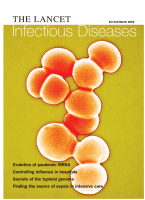Citation:
Ginsburg I. Role of lipoteichoic acid in infection and inflammation. The Lancet Infectious Diseases. 2002;2 (3) :171-179.

Abstract:
Lipoteichoic acid (LTA) is a surface-associated adhesion amphiphile from Gram-positive bacteria and regulator of autolytic wall enzymes (muramidases). It is released from the bacterial cells mainly after bacteriolysis induced by lysozyme, cationic peptides from leucocytes, or beta-lactam antibiotics. It binds to target cells either non-specifically, to membrane phospholipids, or specifically, to CD14 and to Toll-like receptors. LTA bound to targets can interact with circulating antibodies and activate the complement cascade to induce a passive immune kill phenomenon. It also triggers the release from neutrophils and macrophages of reactive oxygen and nitrogen species, acid hydrolases, highly cationic proteinases, bactericidal cationic peptides, growth factors, and cytotoxic cytokines, which may act in synergy to amplify cell damage. Thus, LTA shares with endotoxin (lipopolysaccharide) many of its pathogenetic properties. In animal studies, LTA has induced arthritis, nephritis, uveitis, encephalomyelitis, meningeal inflammation, and periodontal lesions, and also triggered cascades resulting in septic shock and multiorgan failure. Binding of LTA to targets can be inhibited by antibodies, phospholipids, and specific antibodies to CD14 and Toll, and in vitro its release can be inhibited by non-bacteriolytic antibiotics and by polysulphates such as heparin, which probably interfere with the activation of autolysis. From all this evidence, LTA can be considered a virulence factor that has an important role in infections and in postinfectious sequelae caused by Gram-positive bacteria. The future development of effective antibacteriolitic drugs and multidrug strategies to attenuate LTA-induced secretion of proinflammatory agonists is of great importance to combat septic shock and multiorgan failure caused by Gram-positive bacteria.Publication Global ID: http://www.ncbi.nlm.nih.gov/pubmed/11944187

